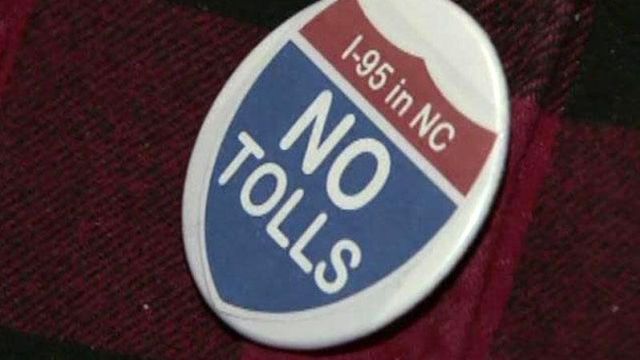DOT collects final public input in Fayetteville on I-95 tolling plan
About 200 people turned out Monday in Fayetteville for the state Department of Transportation's last public meeting on a plan to collect tolls along Interstate 95 to pay for highway improvements.
Posted — UpdatedAbout 200 people turned out for the final public meeting about the tolls at a Fayetteville hotel, 10 days after the Federal Highway Administration gave the plan conditional approval. Many asked that the state find other ways to fund road improvements, but the DOT said the sta has to maintain more roads with less money.
North Carolina, which is one of three states participating in a pilot project allowing tolling on existing interstates, consistently ranks in the top two states for the number of roads it manages. It also ranks near the bottom nationally in dollars spent per mile of highway.
Still, Chuck Fager, of Fayetteville, said he worries that tolls would scare business away from the I-95 corridor.
"It will make this region much less attractive to new businesses and employers," Fager said. "It will be an economic setback to the region."
Fager mapped the alternatives to the highway's path through North Carolina online.
"From border to border, it's three hours," he said. "If you take 301, it would take five hours."
Even if people do choose to take different routes, he said, tolls will still affect everyone.
"Most everything we buy will be coming by truck, and the heavy cost of the tolls will be passed on (to consumers)," Fager said.
Musheerah Ali, of Lumberton, drives on I-95 every day to get to Fayetteville for work and said she doesn't support tolling.
"I really don't like tolls. I don't think it will do us any good at this point," she said. "(For) all the workers that commute on I-95, not just me as an individual, but the bigger picture."
Ali added that other options for funding highway projects should be considered.
"Let's keep weighing all options before we put tolls out there," she said.
But state officials said there aren't other options. The only funding for road improvements currently comes from the gas tax, said DOT spokeswoman Kristine O'Connor.
"What people have to consider is that modern and well-maintained roads benefit all of us," she said. "If we continue to just fix I-95 and not (do) the major improvements that are needed, it's going to get more and more congested.
"It's not going to be a road that people want to ride on anyway, so let's invest in it now."
Still, she said, the feedback meetings were important in helping the DOT answer people's questions and concerns, even if the plan moves forward with or without public support.
One suggestion that has come out of the sessions is a decreased tolling rate for frequent users, such as people who commute to work on I-95.
That's an idea the DOT is considering, O'Connor said.
The DOT commissioned a $6.4 million study in 2009 to determine how to upgrade I-95. The study, which was submitted to state officials last month, found it necessary to raise bridges, rebuild others, improve interchanges, bring the interstate up to current safety standards and widen the highway from beginning to end.
The study recommended tolling the 182-mile stretch of I-95 in North Carolina to pay for the improvements. According to the study, driving the entire length of the interstate in North Carolina would cost drivers about $19.20.
• Credits
Copyright 2024 by Capitol Broadcasting Company. All rights reserved. This material may not be published, broadcast, rewritten or redistributed.






